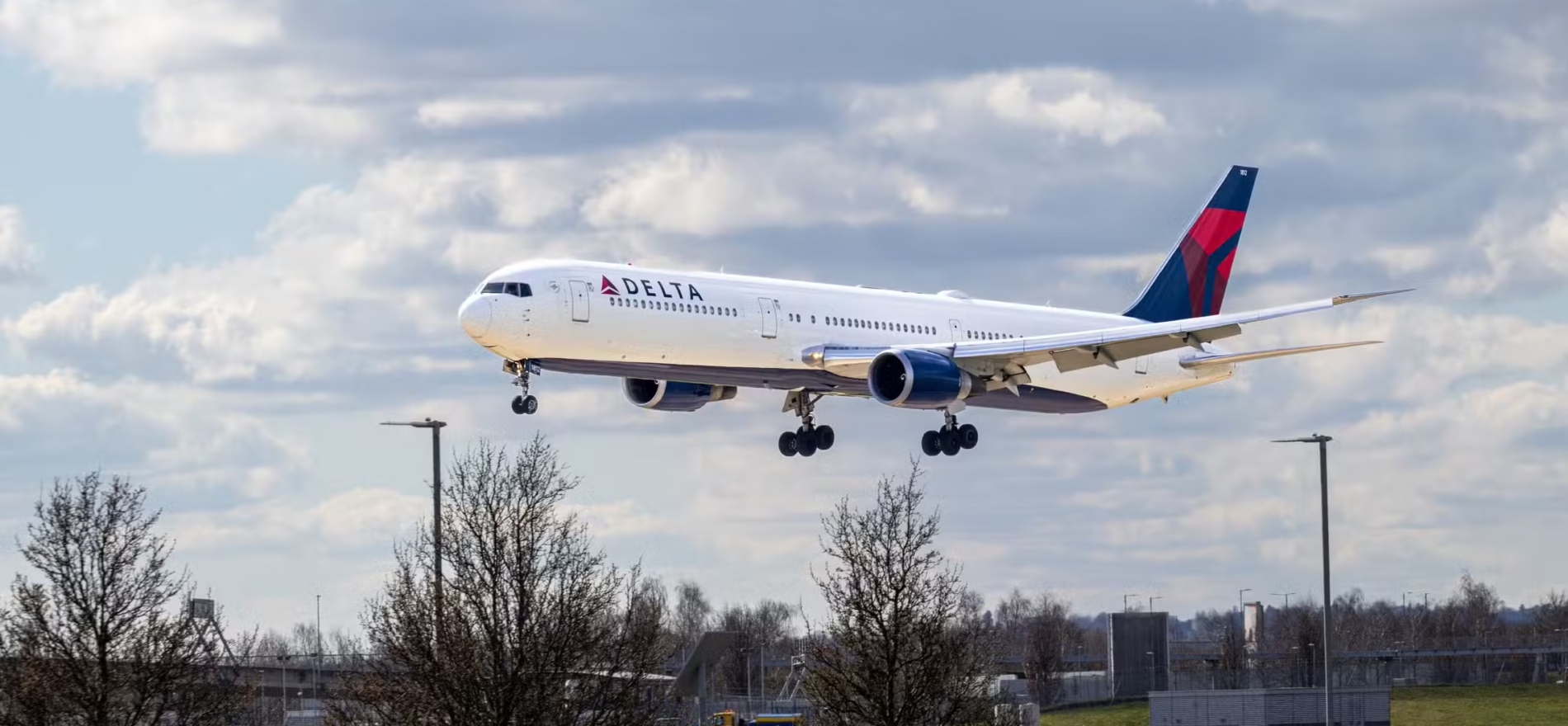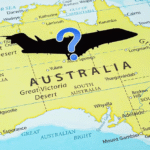Delta Air Lines plans to test “shark skin” riblets on its fleet of Boeing 767 aircraft. This initiative is part of the airline’s effort to make its older planes more fuel-efficient and environmentally friendly by implementing sustainable aviation technology.
As part of this initiative, the Atlanta-based airline has teamed up with Australian aviation technology company MicroTau to apply and test shark skin-inspired riblets to the Boeing 767’s fuselage, aiming to reduce drag by mimicking the texture of shark skin.
Looking To Nature For Innovation Inspiration
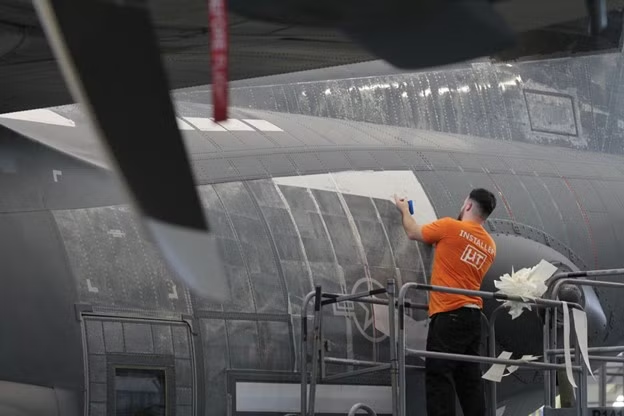
Delta Air Lines is actively exploring new aviation technologies through its innovation hub, the Sustainable Skies Lab. Now, the airline is turning to nature for inspiration as it works to boost fuel efficiency across its aging 61 Boeing 767 widebody aircraft.
Surprisingly, the inspiration comes not from flying creatures, but from the underwater world—specifically, shark skin. Although shark skin looks smooth, it is actually covered in tiny grooves called dermal denticles. These help sharks swim faster and use less energy. By copying this texture, known as riblets, and applying it to an aircraft’s surface, airflow becomes smoother, reducing drag and helping the plane use less fuel.
According to the airline, 90% of Delta’s carbon emissions come from jet fuel each year. Therefore MicroTau estimated that applying the new shark skin riblets to the Boeing 767’s fuselage, tail, and wings could improve fuel efficiency by up to 4%. Interestingly, MicroTau has already implemented this technology on a US Air Force Lockheed Martin C-130J. Commenting on the news, Sustainable Skies Director at Delta Air Lines, Sangita Sharma, said:
“Delta’s Sustainable Skies Lab bridges the gap between ideas and proven innovation by accelerating research, design and testing for a more sustainable future of air travel. Collaborating with innovative partners lets us explore both changes that can be implemented in the near-term, and longer-term initiatives that will revolutionize how we think about flying for years to come.”
Other Sustainability Projects
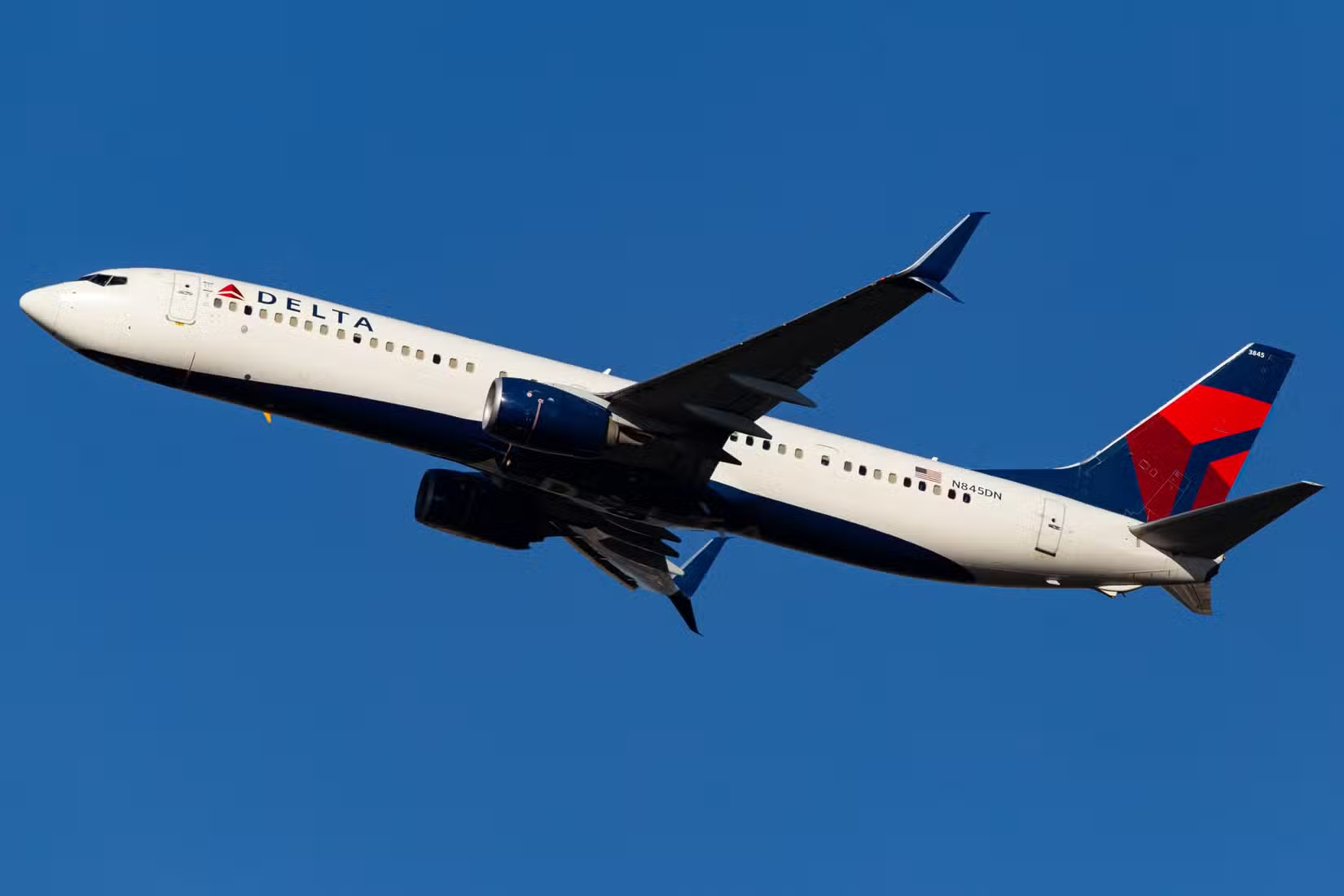
In addition to testing shark skin technology on its Boeing 767s, Delta is also installing and testing finlets on select Boeing 737 aircraft. These small fins, inspired by those found on fish, are mounted on the rear fuselage to help reshape airflow, reduce drag, and ultimately lower fuel consumption and carbon emissions.
Finlets work on a similar principle as winglets, which Delta has already added to all eligible aircraft in its fleet, by reducing drag. They do this by disrupting the vortices that form in some regions of the aircraft, helping to improve aerodynamic efficiency. Delta is committed to achieving net-zero emissions by 2050. The airline believes that every decision, whether it is adding shark skin riblets or installing finlets, can contribute to meaningful fuel savings over time.
Across the Delta’s fleet, this means billions of dollars in fuel saved and millions of tonnes of CO2 emissions prevented. These efforts reflect Delta’s broader strategy: making changes to its current fleet, investing in next-generation, fuel-efficient aircraft, and supporting research into future technologies that will help reach its decarbonization goals.
Current Delta Air Lines Fleet
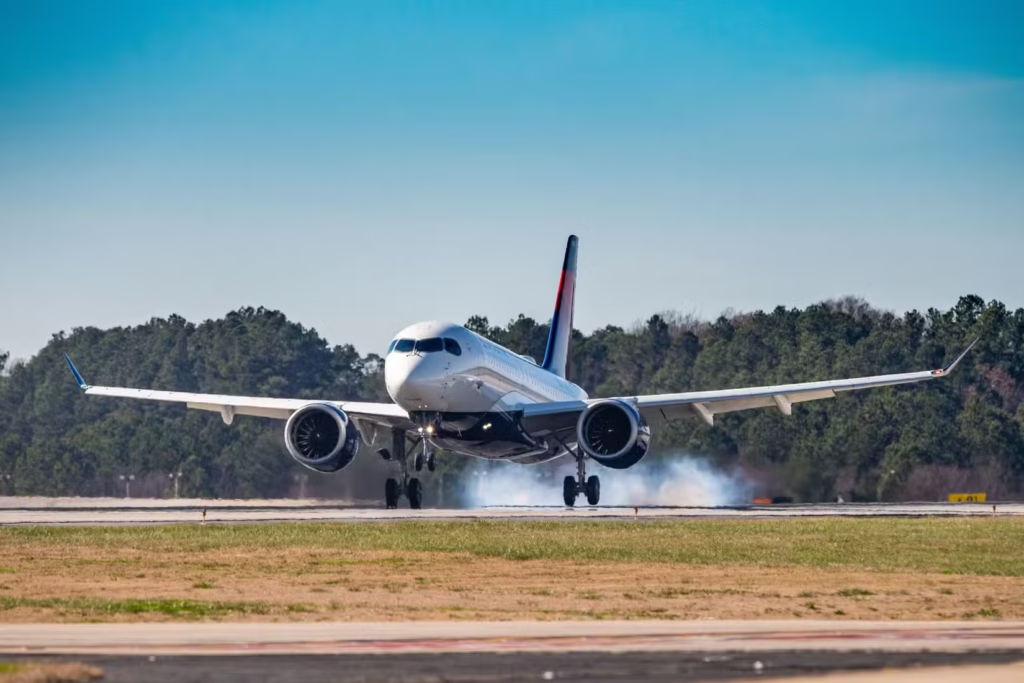
Naturally, aircraft are the primary source of CO2 emissions in the aviation industry, with the worst offenders being older, inefficient widebody models like the Boeing 747 and Airbus A340. As a result, the larger an airline’s fleet, the greater the responsibility to ensure its aircraft are as fuel-efficient as possible.
Delta Air Lines, one of the largest carriers in the world, currently operates a fleet of 996 aircraft with an average age of 16 years, according to ch-aviation data. Naturally, such a large fleet includes older-generation models like the Boeing 767 and Boeing 717. Here is the airline’s fleet composition:
- 127 Airbus A321-200s
- 73 Airbus A321neos
- 54 Airbus A320-200s
- 57 Airbus A319s
- 45 Airbus A220-100s
- 31 Airbus A220-300s
- 33 Airbus A330neos
- 31 Airbus A330-300s
- 11 Airbus A330-200s
- 36 Airbus A350-900s
- 163 Boeing 737-900ERs
- 77 Boeing 737-800s
- 80 Boeing 717s
- 101 Boeing 757-200s
- 16 Boeing 757-300s
- 40 Boeing 767-300ERs
- 21 Boeing 767-400ERs

